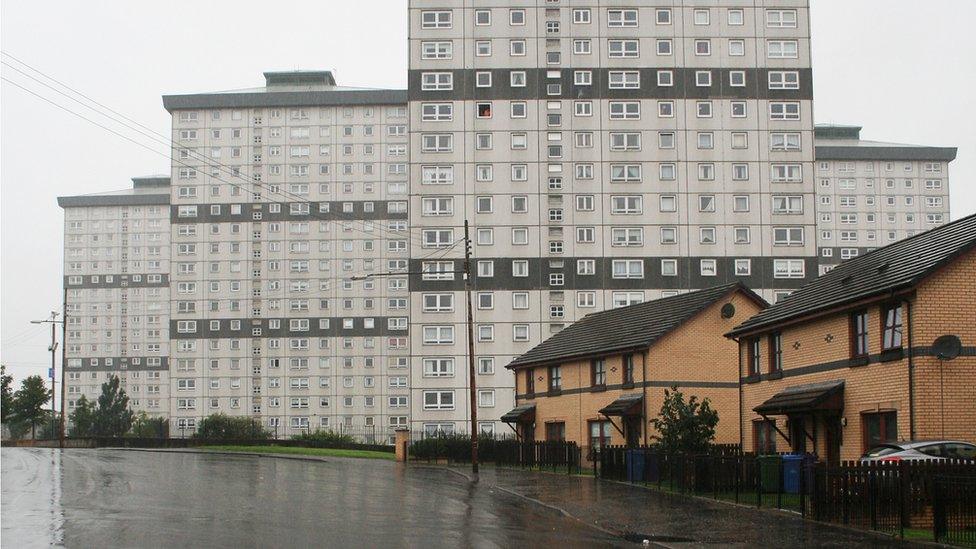Flexible working urged to eradicate child poverty in Scotland
- Published
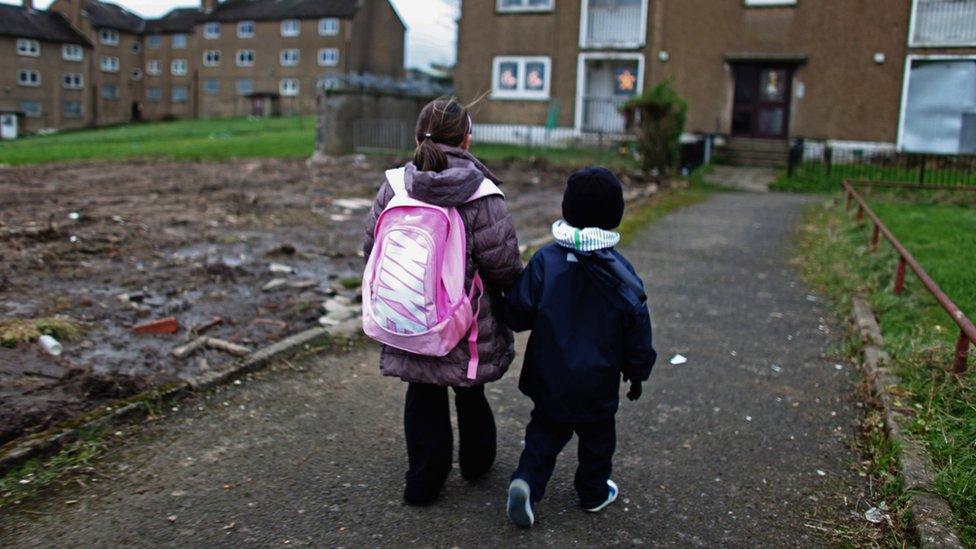
From 2014-15 to 2016-17 an average of 230,000 children in Scotland were living in relative poverty each year
Child poverty in Scotland can only be eradicated if there is a change in attitudes towards flexible work, according to a leading charity.
The Joseph Rowntree Foundation has estimated one in four Scots children - almost 250,000 - are living in poverty.
It has called for action from the Scottish and UK governments.
It said a shift in attitudes and policy was needed on childcare, flexible work and benefits to ensure parents were not "locked out" of the jobs market.
The charity's Poverty in Scotland 2018 report said that over the period 2014-15 to 2016-17 an average of 230,000 children in Scotland were living in relative poverty each year.
The majority of these children were in families where someone was disabled or parents were finding it difficult to juggle work and childcare.
The report said that, although there was a consensus across the Scottish Parliament that this situation could be ended within a generation, it required government action.
Legislation passed unanimously by Holyrood in 2017 set a number of targets for cutting child poverty - including having just one in 10 children living in relative poverty and only 5% in absolute poverty - by 2030.
But the JRF said there needed to be more link-up between poverty strategies and labour market strategies, adding that without this "it is questionable whether the Scottish government will be able to reach its child poverty targets".
The report also demanded changes to the UK government's universal credit benefit system, warning without this "more families, especially lone parents, are likely to face higher rates of poverty in and out of work".


Poverty figures:
Of the 230,000 children living in poverty, 90,000 were in a family where someone - usually an adult - was disabled or had a medical condition that limits what they can do
30,000 youngsters were living in a family where one adult - usually the mother - was not in work
A further 30,000 children in single parent households are also affected
Just over 15,000 children of lone parents who worked part-time were in poverty
Almost 15,000 children were in a family where one of the couple worked full time and the other worked part-time

The report said: "For employment to become a more reliable route out of poverty, further action on flexible work and childcare is needed."
SNP ministers have already pledged to increase free childcare to 1,140 hours a year for all three and four-year-olds, and some two-year-olds, by the end of this parliament.
But the report said: "It is yet to be seen whether the Scottish government's expanded offer of free childcare to parents of three and four-year-olds will help to transform women's labour market participation in ways needed to reduce child poverty and close the gender pay gap."
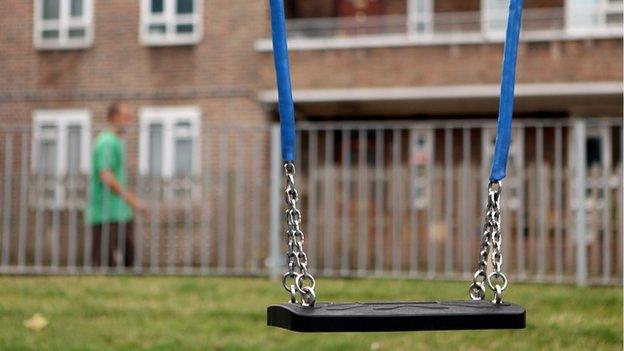
JRF chief executive Campbell Robb said: "Families in Scotland are facing impossible situations such as deciding whether to pay the rent, put food on the table or pay for heating.
"There is consensus across the Scottish Parliament that this unacceptable situation of so many children in poverty will be brought to an end within a generation. This is achievable.
"But it means the Scottish government needs to lead the way, working with and encouraging employers to open opportunities for parents with disabilities or caring commitments, so everyone can build a decent and secure life."
Peter Kelly, director of the Poverty Alliance, added: "We know what can be achieved when the right solutions are in place. But we also know that much more needs to be done. That's why more concerted action is required from Scottish government and business."
Communities Secretary Aileen Campbell said the JRF report was "welcome" and that the Scottish government would wok with the charity on their suggested solutions.
'Unacceptable levels'
She said the report "explains clearly the challenges we face whilst also outlining how our current programmes, including actions to address the gender pay gap and disability employment can tackle poverty, which remains at unacceptable levels".
Ms Campbell said UK government welfare cuts "will significantly increase the number of children in poverty in Scotland - and across the UK".
She added: "Whilst this means we are tackling poverty with one hand tied behind our back, I know if we take action in the right ways, we have the chance to reduce child poverty to the lowest levels ever in Scotland's history and that is a future all of us want."
The UK government said the proportion of people in Scotland living in absolute poverty was at a record low, including for children.
A spokeswoman added: "The best way to help people improve their lives is to support them into work, and universal credit gives people the flexibility to increase their working hours while keeping more of their money.
"The Scottish government now has significant welfare powers, including to top-up existing benefits, pay discretionary payments and create entirely new benefits altogether."
- Published24 January 2018
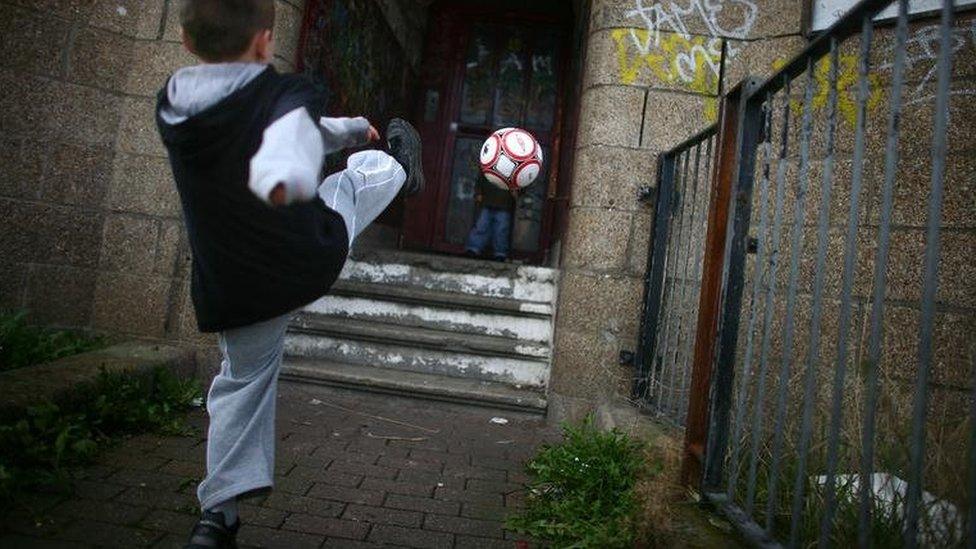
- Published26 February 2018
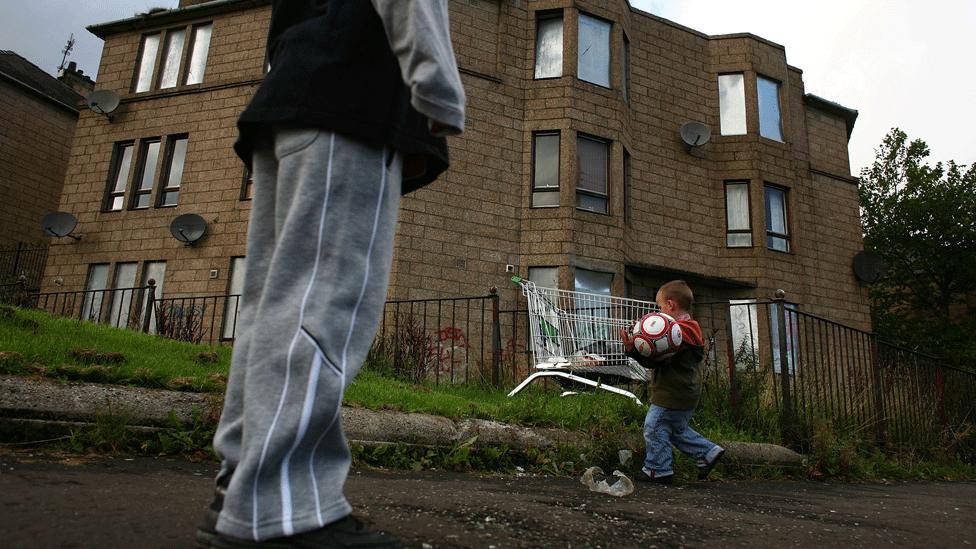
- Published15 March 2018
